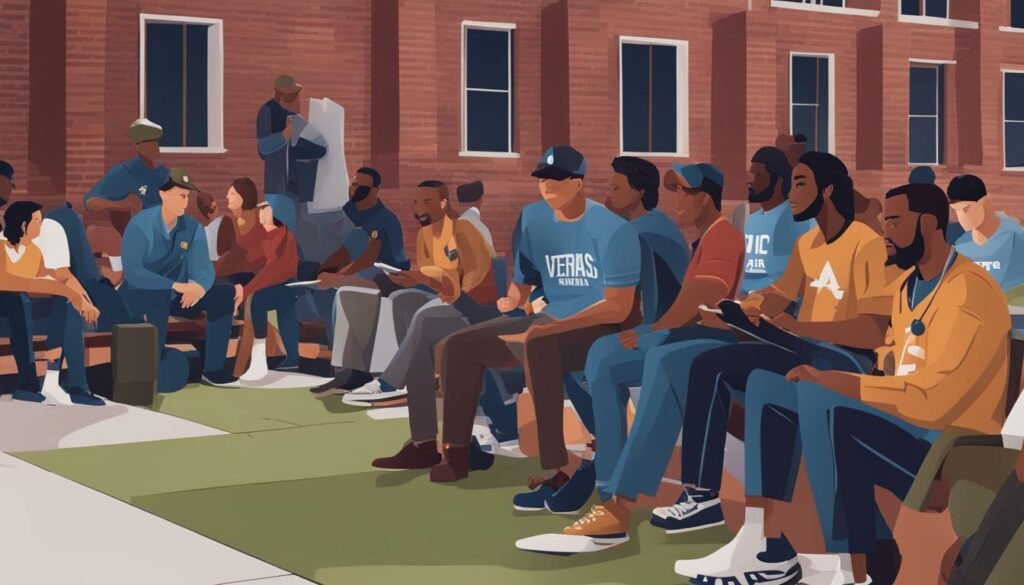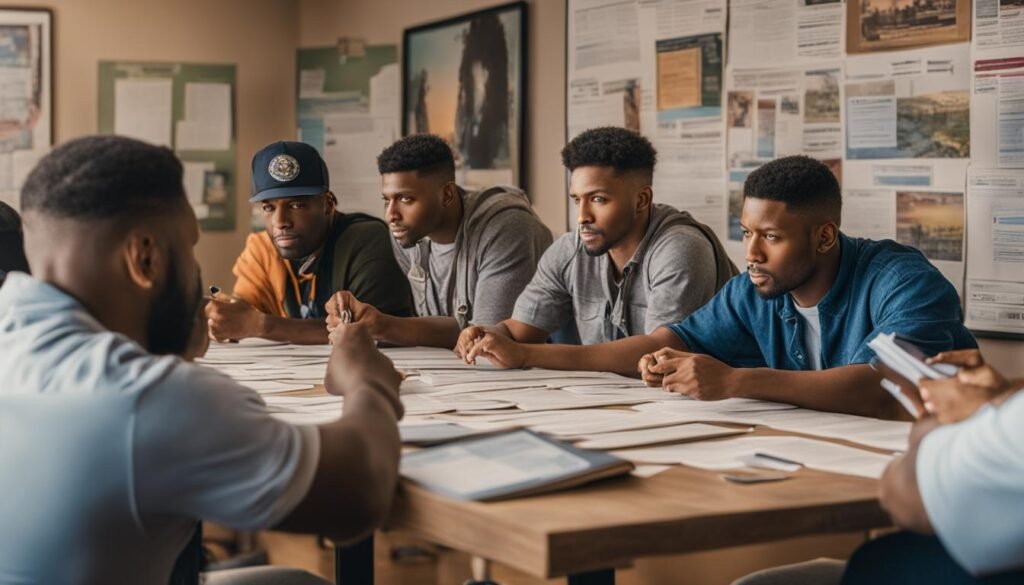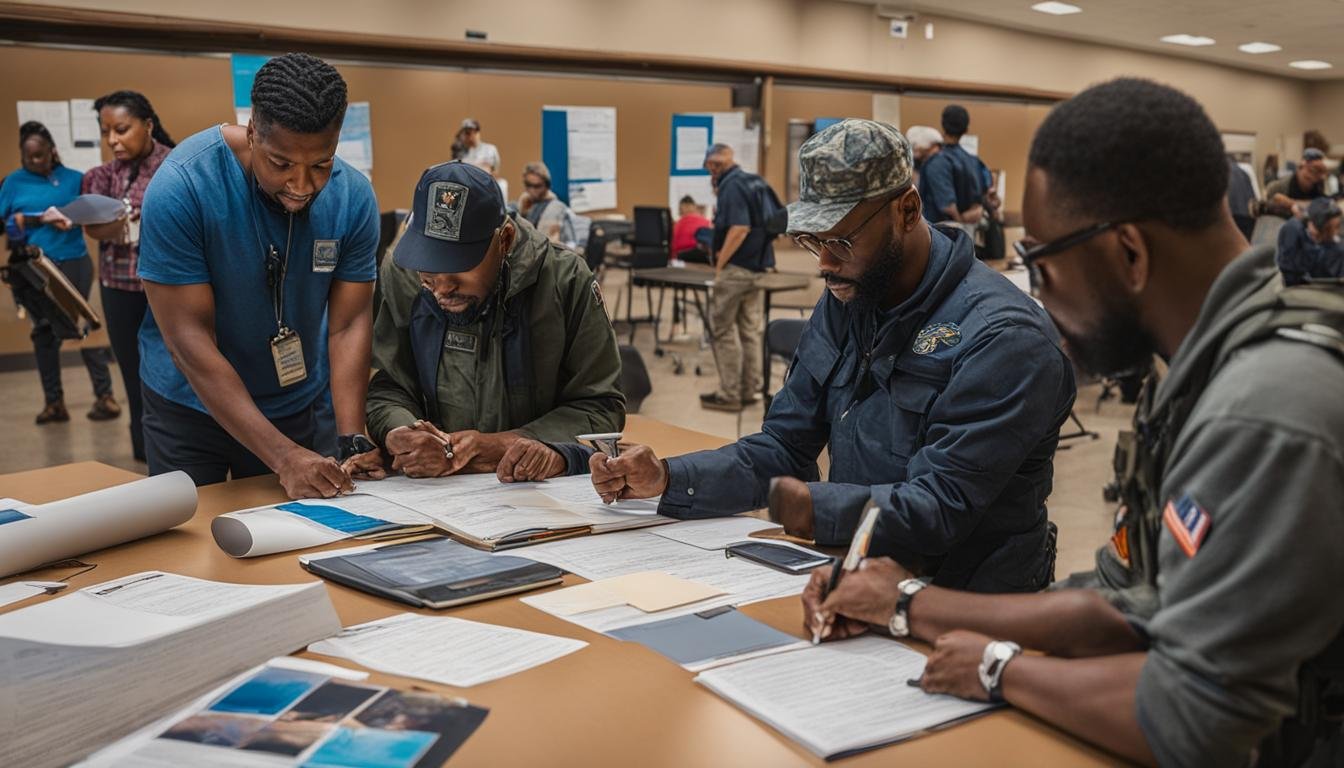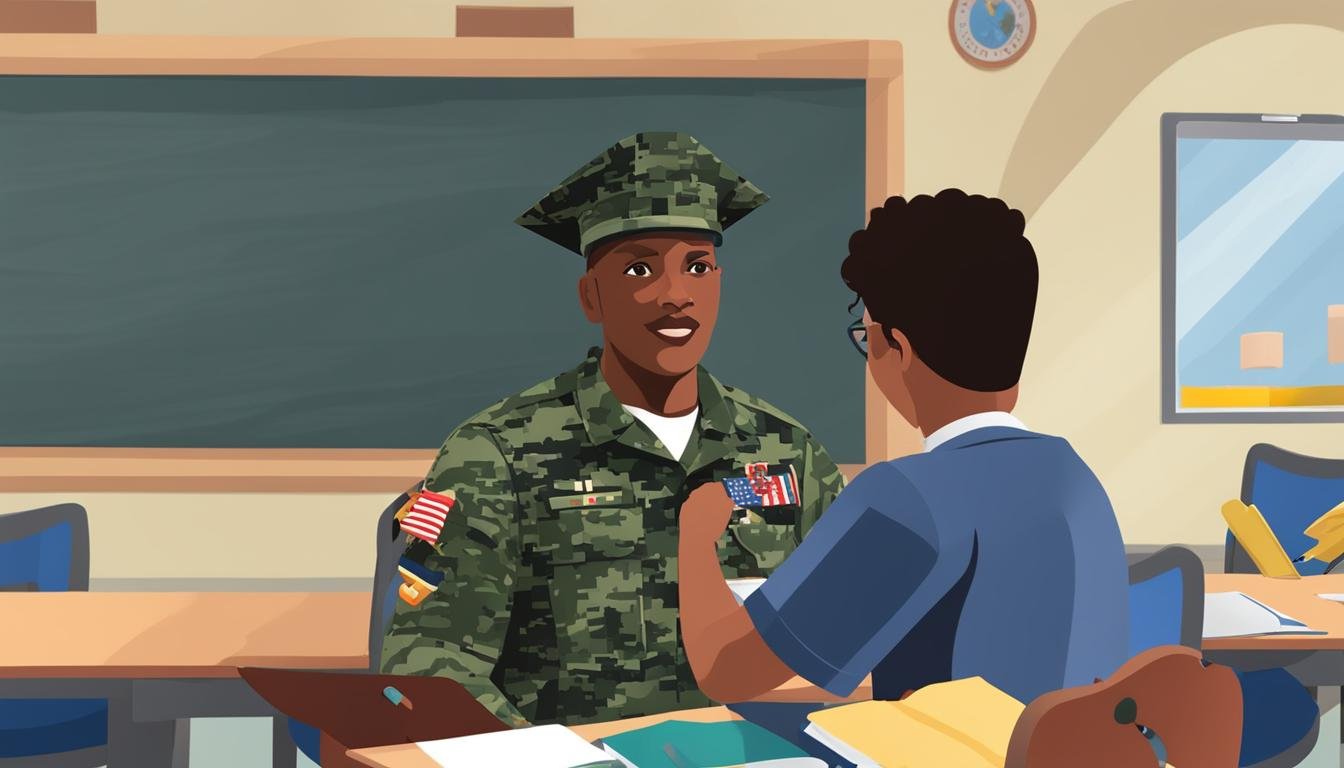When it comes to supporting our brave servicemen and women in their educational journey, veteran support services in colleges play a critical role. However, it’s essential to evaluate and assess these services to ensure they are effectively meeting the needs of student veterans.
A research study conducted by Azpeitia and Emerson highlighted the importance of assessing veteran support services. The study surveyed over 130 student veterans and found that while some services are accessed and utilized, few contribute to long-term success. However, services such as the Veterans Resource Center, VA benefits certification, library resources, career services, and counseling services were identified as crucial for long-term success.
Colleges should not solely rely on demographics to measure success. Instead, they should focus on evaluating the effectiveness of their veteran support services to provide the best educational opportunities for our heroes.
Key Takeaways:
- Assessing veteran support services is crucial for ensuring the success of student veterans in colleges.
- The Veterans Resource Center, VA benefits certification, library resources, career services, and counseling services are identified as services contributing to long-term success.
- Demographics alone should not be used to measure success; colleges need to evaluate the effectiveness of their support services.
Key Factors to Consider When Assessing Veteran Support Services

When evaluating college support services for veterans, it is important to consider several key factors that contribute to their overall success and well-being. By assessing these factors, colleges can ensure that they are providing the best support possible for our brave servicemen and women.
Evaluating Academic Support
One essential factor to consider is the availability of academic tutoring specifically designed for student veterans. This personalized support can help veterans navigate the challenges of higher education and ensure their academic success. Additionally, offering veteran-only courses can help ease the transition to college life by creating a supportive and understanding environment tailored to their unique needs.
Addressing Disabilities and Health
Colleges should also prioritize the availability of accommodations for veterans with disabilities. This includes physical accommodations, such as wheelchair ramps or accessible buildings, as well as assistive technology devices for those with visual or auditory impairments. Furthermore, it is crucial to provide health and mental health services that are tailored to the specific needs of student veterans, including counseling services that understand the unique challenges they may face.
Enhancing Career Services
Career services play a vital role in helping veterans transition from military life to the civilian workforce. It is important for colleges to offer career counseling and guidance that specifically caters to the needs of student veterans. This can include networking opportunities, job fairs, and internship possibilities that can help veterans gain valuable experience and build connections in their chosen fields.
| Key Factors to Consider | Evaluation Criteria | |
|---|---|---|
| Academic Support | – Availability of tutoring | – Offering veteran-only courses |
| Addressing Disabilities and Health | – Accommodations for disabilities | – Tailored health and mental health services |
| Enhancing Career Services | – Career counseling and guidance | – Networking and internship opportunities |
By evaluating these key factors, colleges can measure the effectiveness of their veteran support services and identify areas for improvement. This assessment process ensures that colleges are providing the necessary resources and support to help veterans thrive in their educational and career pursuits. By continuously striving to enhance these services, colleges can create a truly veteran-friendly environment where our servicemen and women can succeed.
Coordinating Support and Resources for Student Veterans

When comparing veteran support services in colleges, it is essential to evaluate the available resources and services provided by each institution. Coordinating support and resources effectively ensures that student veterans receive the necessary assistance to succeed in their educational and career pursuits.
One program that exemplifies this coordination is the Veteran Integration to Academic Leadership (VITAL) sites. VITAL offers a wide range of mental health and supportive services on campus, addressing various challenges that student veterans may face. These services include assistance with time management, attention and memory difficulties, sleep issues, adjustment, stress, PTSD, depression, substance use, anxiety, and traumatic brain injury. VITAL also functions as a bridge between colleges, VA facilities, and community partners to coordinate care for both physical and mental health needs. They can help with enrollment in VA health benefits, provide answers to questions related to benefits and vocational rehabilitation, and offer certification on campus.
In addition to mental health services, VITAL staff members can assist student veterans in setting up academic accommodations. These accommodations may include assistive technology devices, assistive physical supports, and assistive psychological supports. By working closely with student veterans, VITAL ensures that their unique needs are addressed, allowing them to thrive academically.
By coordinating support and resources, colleges can enhance the overall support available to student veterans. This coordination ensures that student veterans have access to a comprehensive set of services tailored to their specific needs, helping them succeed both in and outside of the classroom.
Overall, evaluating college resources for veterans is crucial in providing the best support for our brave servicemen and women. Coordinating services like those offered by VITAL helps create a supportive environment where student veterans can thrive. By continually assessing and improving veteran support services, colleges can ensure that student veterans receive the assistance they need to succeed in their educational and career goals.
Conclusion
Assessing veteran support services in colleges is crucial to create a veteran-friendly environment and ensure that our brave servicemen and women receive the best resources and opportunities for their educational journey. By evaluating the effectiveness of these services, colleges can identify areas of improvement and implement best practices.
When assessing veteran support services, it is important to consider key factors such as academic tutoring, veteran-only courses, accommodations for disabilities, health and mental health services, and career services. These factors play a significant role in supporting the unique needs of student veterans and contributing to their long-term success.
Coordinating support and resources through programs like Veteran Integration to Academic Leadership (VITAL) further enhances the assistance available to student veterans. VITAL sites offer a range of mental health and supportive services on campus, coordinate care between colleges, VA facilities, and community partners, and assist with academic accommodations.
By continuously assessing and improving veteran support services, colleges can provide the necessary assistance for veterans to thrive in their college experience and beyond. Creating a veteran-friendly college assessment ensures that our brave servicemen and women can achieve their educational and career pursuits with the support they deserve.



